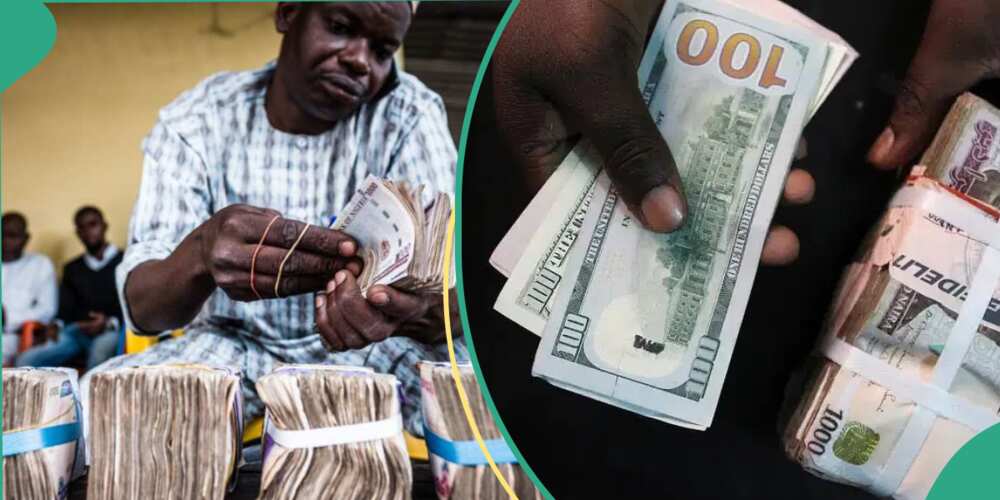Business
New naira: CBN, EFCC to track large withdrawals

The Governor of the Central Bank of Nigeria, Godwin Emefiele has said that it would work with law enforcement agencies like the Economic and Financial Crimes Commission and the Independent Corrupt Practices and Other Related Offences Commission, to complicate and track large withdrawals.
He said this while briefing the press after the launch the new Naira banknotes in Abuja on Wednesday.
At the briefing, Emefiele said that the amount of money that can be withdrawn from the counter would be reduced drastically, adding that bulk withdrawals would require several procedures and security checks to track use.
He said this would ensure a steady transition into a cashless economy.
“There is no economy imbued with the thinking that it has to be a cash economy; the world has moved from predominantly cash to a cashless economy. And I think Nigeria and the Central Bank of Nigeria are prepared to move towards a cashless economy. And that is why following the redesign and issuance of this note, we will insist that cashless will be nationwide.
“We will restrict the volume of cash that people can withdraw over the counter. If you need to draw large volumes of cash, you will fill out uncountable forms; we will take your data, whether it’s your BVN or NIN so that our law enforcement agencies like EFCC and ICPC can follow you and be sure that you are taking that money for a good purpose.”
READ ALSO:
- Wife Stabbed Hubby To Death For Making Move For Sex
- Spain defeats Costa Rica 7-0 as they kick off World Cup campaign
- Ikirun mayhem: How deceased was killed, Eyewitness narrates
He also noted that this move alongside the redesigned notes would ensure that the apex bank has ample control over the amount of money in circulation.
The CBN Governor further argued that the new move is not targeted at anyone while noting that the past attempts to redesign the naira notes were resisted.
According to him, “The Central Bank of Nigeria, by law, has the mandate to reissue and redesign currency for the country, and for Nigerian people, every five to eight years. And I want to hope that after the event of today, the Central Bank of Nigeria can take it as part of its programmes to see that the currencies are designed or reissued every five to eight years.
“It is mainly because the central bank should be able to control the size of currency in circulation fully. That is the actual mandate of the Central Bank of Nigeria because it has implications for monetary policy management in the country.
“There is no need for anybody to think this program is targeted at anyone. Like you heard the President, he said, this discussion to redesign and reissue currency started early in the year.”
The President, Major General Muhammadu Buhari (retd.), said the naira notes are long overdue for a change as the current tender has been in circulation for nearly 20 years.
This was as he said the newly redesigned notes have unique security features that make them difficult to counterfeit.
Buhari said this when he launched the new Naira banknotes at the council chamber of the State House, Abuja, shortly before the kick-off of this week’s Federal Executive Council meeting.
READ ALSO:
- INEC Moves To Check Illicit Flow of Campaign Funds
- Ex-AG-F Idris returned $900,000 cash, witness tells court
- We’ve recovered $1bn looted funds since 2015 —FG
According to a statement signed by Buhari’s Special Adviser on Media and Publicity, Femi Adesina, Buhari also expressed delight that the redesigned currencies were locally produced by the Nigerian Security Printing and Minting PLC.
Speaking at the launch of the new banknotes, the President noted that international best practice requires central banks and national authorities to issue new or redesigned currency notes every five to eight years.
He lamented that it is almost 20 years since the last major redesign of the country’s local currency was done.
‘‘This implies that the Naira is long overdue to wear a new look.
“A cycle of banknote redesign is generally aimed at achieving specific objectives, including but not limited to: improving the security of banknotes, mitigating counterfeiting, preserving the collective national heritage, controlling currency in circulation, and reducing the overall cost of currency management,” he said.
He added that “the new Naira banknotes have been fortified with security features that make them difficult to counterfeit.’’
Explaining why he approved the redesign, the President said there is an urgent need to control the amount of currency in circulation.
Punch
Business
Naira records five-month highest gain, sells below N1000/$ at parallel market

Naira records five-month highest gain, sells below N1000/$ at parallel market
The naira continued its positive showing against the United States dollar on Monday, selling below N1000/$ in some segments of the parallel market.
Newstrends reports that the Federal Government, groups and some individuals have mounted a spirited campaign for those hoarding the dollars to push them out as naira continues to appreciate.
On Monday, the naira was offered in some parts of Lagos and Abuja between N995 and N1,050 per dollar in the parallel market. It was N1,230/$ on Friday.
The latest gain, being over five-month highs, came in the wake of the Iranian attack on Israel and a rise in the crude oil price.
Goldman Sachs, American investment bank economists, had earlier predicted that the naira’s bullish momentum on the foreign exchange market would likely cause it to trade for less than N1,000 per US dollar in the coming months.
According to a report by Nairametrics, the group claimed that the rally in Nigerian currency helped recover from large losses after two devaluations since last June by being bolstered by capital inflows and successive interest rate hikes.
In March, Goldman Sachs projected that the Naira would appreciate to N1,200 per dollar in 2024.
At the official foreign exchange market, the rate was put at N1,136/$ in contrast with N1,205/$ last Friday.
The top bank has implemented several policy initiatives in recent months to bring stability to the foreign exchange market.
The CBN increased interest rates to 24.75% at the most recent meeting of the Monetary Policy Committee (MPC), which helped it recover losses from the two devaluations that occurred since June of last year.
Further gains for the naira result from the CBN’s ongoing intervention, which involves selling foreign exchange to Bureau De Change operators at a revised rate.
The market anticipates higher inflows of US dollars from the sale of foreign currency bonds in the second quarter as disclosed by Finance Minister Wale Edun.
The Federal Government has just offered high-yield short-term debt products at a premium to entice overseas capital into the economy.
The Middle East’s geopolitical unrest and
Notwithstanding a drop in Nigeria’s production volume, crude oil prices have risen beyond $90.
Nigerian grades of oil are trading at a premium to the ICE Brent benchmark.
The Middle East’s geopolitical unrest and the anticipation of an Iranian government strike on Israel caused oil prices to soar.
Business
Breaking: Nigeria’s inflation rises to 33.2%, says NBS

Breaking: Nigeria’s inflation rises to 33.2%, says NBS
The National Bureau of Statistics (NBS) says the nation’s inflation rate rose to 33.2 per cent for the month of March 2024.
This represents a 1.5 per cent increase over 32.7 per cent recorded in February 2024.
The NBS disclosed this in a new report released on Monday.
It explained that the rise was primarily due to higher costs of food, beverages, energy, and housing. Compared to February 2024, the inflation rate in March increased at a slower pace, with food inflation reaching 40.01% year-on-year.
NBS attributed the spike in food prices to the rising costs of items like garri, millet, yam tubers, and others. On a month-on-month basis, food inflation slightly decreased to 3.62% in March 2024.
Urban inflation also increased to 35.18% year-on-year in March 2024, while rural inflation stood at 31.45%.
Core inflation, which excludes volatile agricultural products and energy, was 25.90% year-on-year in March 2024.
Overall, the rising cost of living in Nigeria is evident in the significant increase in inflation rates across different categories.
It is crucial for policymakers to address these challenges to alleviate the financial burden on the population.
Business
Nigeria’s oil production drops by 2.8 million barrels in one month

Nigeria’s oil production drops by 2.8 million barrels in one month
The Nigeria Upstream Petroleum Regulatory Commission (NUPRC) has confirmed the data released by the Organisation of Petroleum Exporting Countries (OPEC), indicating a consecutive decline in Nigeria’s oil production for the second month in a row.
According to NUPRC reports, crude drilling operations in March saw a notable decrease, with production dropping from 1.42 million barrels per day (bpd) in January to 1.23 million bpd in March, marking a significant loss of approximately 2.8 million barrels over the month.
Minister of State for Petroleum Resources (Oil), Senator Heineken Lokpobiri, acknowledged the declining trend, attributing it to issues on the Trans Niger Pipeline (TNP) and maintenance activities by oil companies in Nigeria during the period.
READ ALSO:
- Army kills terrorists invading Kaduna with arms, ammunition
- El-Rufai’s Ally, Aisha, arrested over Facebook post against Gov Sani
- FG begs workers as electricity union insists on strike over tariff hike
However, beyond crude oil, condensate production, which typically falls outside OPEC’s quota calculation, also experienced a decline in March, further exacerbating Nigeria’s overall production slump.
-

 metro6 days ago
metro6 days agoTribute: C.K George, Epitome of Courage, by Kunle Awobodu
-

 metro5 days ago
metro5 days agoTroops arrest ISWAP commander involved in Army General, 3 soldiers’ killing in Borno
-

 News5 days ago
News5 days agoBREAKING: Ex-Abia gov, Ogbonnaya Onu, is dead
-

 metro6 days ago
metro6 days agoBandit kingpin, Dangote, siblings killed in Katsina
-

 News6 days ago
News6 days agoBetta Edu threatens to sue BBC, alleges defamation
-

 News6 days ago
News6 days agoI never said Aiyedatiwa is Tinubu’s preferred candidate in Ondo – Interior Minister
-

 metro6 days ago
metro6 days agoJUST IN: Actor Junior Pope resuscitated after death scare
-

 metro6 days ago
metro6 days agoPolice arrest female kidnapper in Ebonyi, rescue six abducted children






















